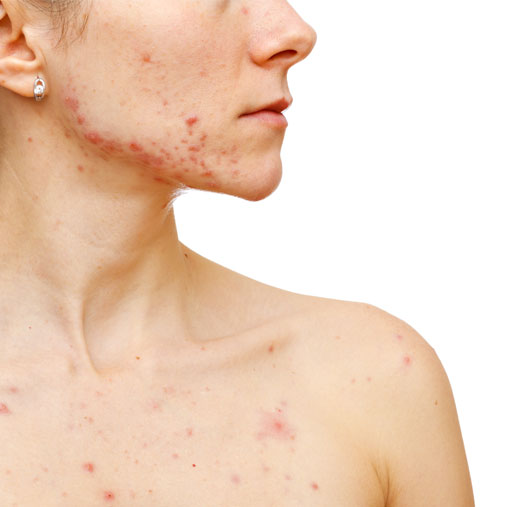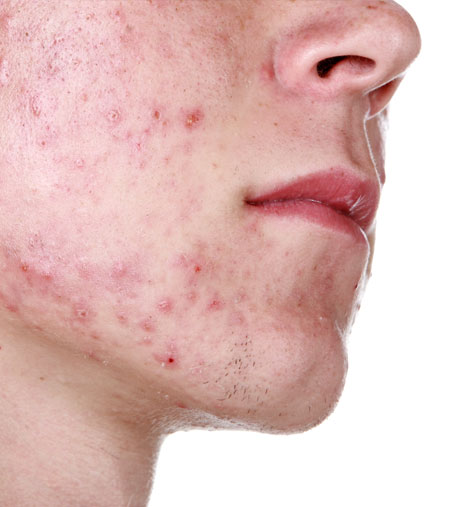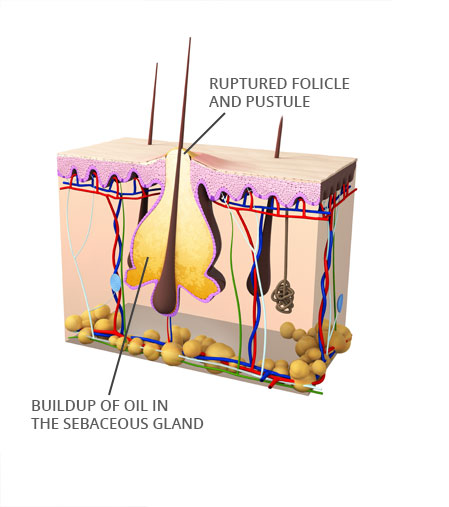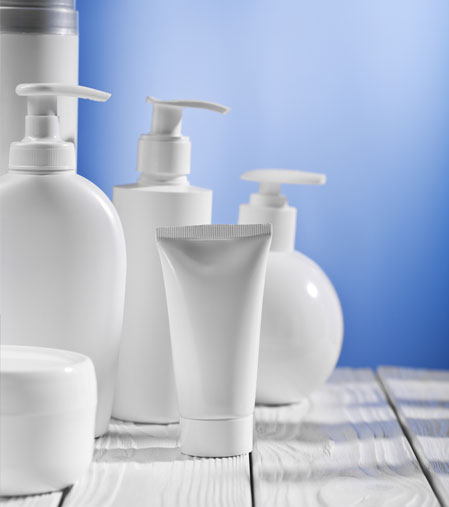Eczema & Psoriasis Treatments
Personalized solutions for all types of acne—because your skin deserves expert care.
Take Control of Your Acne with Expert Dermatological Care
Acne is a common yet highly treatable skin condition that affects millions of people worldwide. Although it’s often associated with teenagers, acne can affect people of all ages, from adolescents to adults.
Early and effective treatment by a board-certified dermatologist is a must, not only to clear existing acne but also to prevent lasting scars and promote overall skin health. At Clarus Dermatology, our expert dermatology team designs customized treatments tailored to your skin type and acne concerns
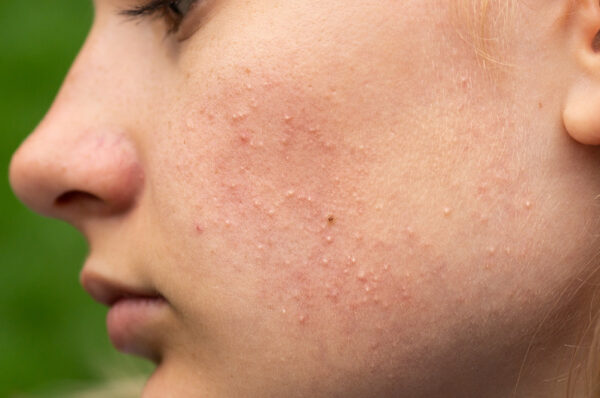 Understanding Acne: Causes & Types
Understanding Acne: Causes & Types
Acne forms when hair follicles become clogged with oil, dead skin cells, and bacteria, causing inflammation and breakouts. The most common causes include:
- Excess oil production
- Clogged pores
- Bacterial infections (Propionibacterium acnes)
- Hormonal fluctuations
- Stress, dietary factors, and environmental influences
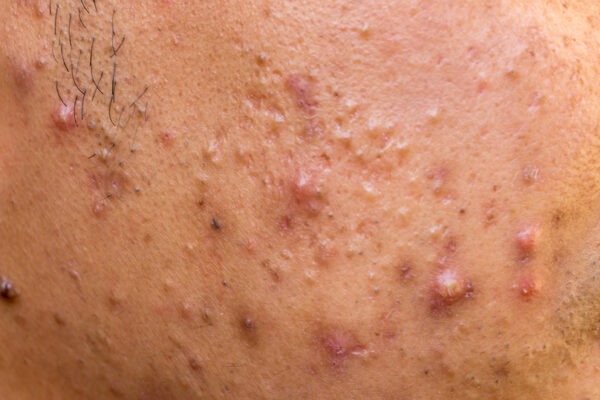 These root causes can lead to multiple types of acne, including:
These root causes can lead to multiple types of acne, including:
- Comedonal acne, characterized by whiteheads and blackheads
- Inflammatory acne, which presents as red, swollen papules and pustules
- Nodular & cystic acne, which involves severe, deeper breakouts that often cause pain and potential scarring
- Hormonal acne, which typically appears around the jawline and chin and is often linked with hormonal cycles.
Personalized Acne Treatments
At Clarus Dermatology, we understand that every patient’s skin needs are different. We work hard to create personalized acne treatments that fit your skin type, acne severity, and medical history. This may include:
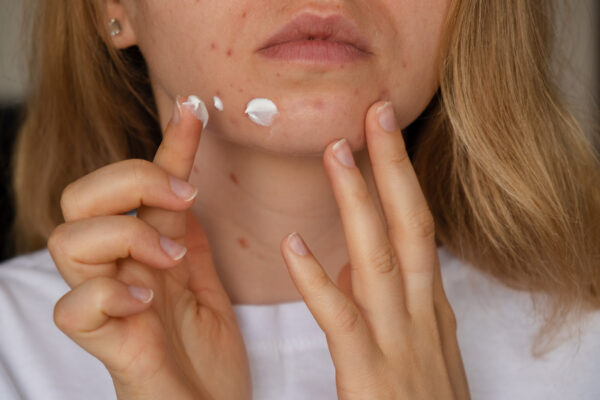 Topical Treatments
Topical Treatments
Topical solutions are often the first line of defense for treating mild to moderate acne. These medications are applied directly to the skin and help target clogged pores, bacteria, and inflammation.
- Retinoids & retinol: Accelerate skin turnover to prevent clogged pores.
- Benzoyl peroxide: Effectively eliminates bacteria and reduces inflammation.
- Salicylic acid: Gently exfoliates skin, clearing clogged pores.
- Topical antibiotics: Specifically target bacteria and soothe inflammation.
Oral Medications
When topical treatments aren’t enough, oral medications can help address acne from within by targeting internal causes, such as bacteria or hormones.
- Antibiotics (Doxycycline, Minocycline): Control bacterial growth and inflammation.
- Hormone Therapy (Birth Control, Spironolactone): Regulates hormone-driven acne.
- Isotretinoin (Accutane): Potent medication for persistent or severe acne cases.
In-Office Procedures
Depending on the situation, we may also recommend in-office treatments that complement your at-home care to reduce active acne and prevent scarring.
- Chemical peels: Exfoliate the skin, promoting healthy cell turnover.
- Laser & light therapy: Reduce acne-causing bacteria and minimize redness.
- Cortisone injections: Quickly relieve inflammation and reduce the size of cystic acne lesions.
- Extraction procedures: Safely clear deep-set whiteheads and blackheads, promoting clearer skin.
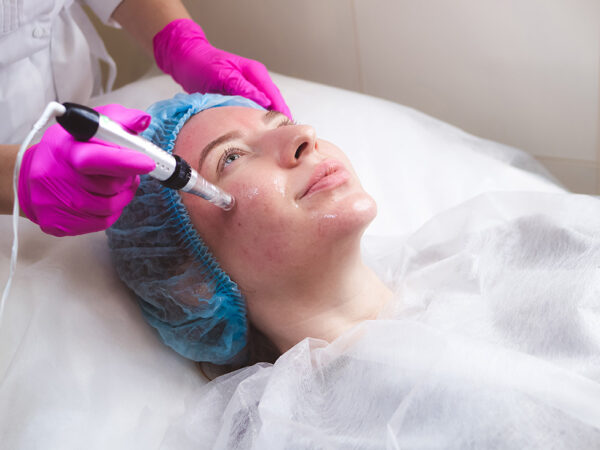 Acne Scarring & Post-Treatment Care
Acne Scarring & Post-Treatment Care
Even after successful acne treatment, scarring or skin texture issues may remain. Our dermatology team offers specialized treatments to help restore your skin’s appearance, including:
- Microneedling: Stimulates collagen production, smoothing skin texture.
- Laser resurfacing: Improves skin texture and reduces post-acne pigmentation.
- Chemical peels: Targets dark spots and post-inflammatory hyperpigmentation.
While these services can help restore your skin’s appearance, it’s important to follow a daily skin care routine to maintain the results of your acne treatment and support long-term skin health. This includes:
- Choosing non-comedogenic products to prevent future breakouts
- Using gentle cleansing techniques to maintain balanced skin
- Applying a broad-spectrum sunscreen daily to protect against discoloration and damage
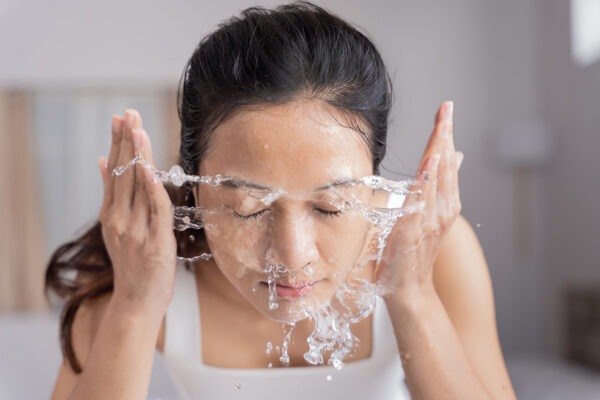 Acne Prevention Tips & Lifestyle Recommendations
Acne Prevention Tips & Lifestyle Recommendations
Preventing acne isn’t just about treating breakouts. It’s about maintaining habits that keep your skin healthy and balanced, which, in turn, helps reduce the likelihood of breakouts. From the products you use to your daily routine and overall wellness, small, consistent actions add up and can make a big difference in preventing future flare-ups.
We recommend:
- Wash your face twice daily with a gentle cleanser to remove oil, dirt, and makeup.
- Use oil-free, non-comedogenic moisturizers that hydrate without clogging pores.
- Stick to your dermatologist-prescribed acne regimen, even after your skin clears.
- Watch for dietary triggers, such as dairy or high-glycemic foods, which can exacerbate acne.
- Stay hydrated and reduce your overall sugar intake to support skin health.
- Manage stress through exercise, adequate sleep, and mindfulness practices.
- Avoid picking or popping pimples, which can lead to scarring and further inflammation.
Frequently Asked Questions
It usually takes 4-6 weeks for acne treatment results to show. However, these are usually just the first improvements, with the best changes taking several months to appear. Because of this, it’s important to be patient and give your skin time to adjust.
OTC treatments can help treat mild acne. However, if you’re dealing with moderate to severe acne or can’t seem to find a solution that helps treat your acne, it’s best to work with a skilled dermatologist. We can help you find solutions that fit your skin’s needs.
Acne recurrence is possible after treatment. Maintaining a consistent skincare routine and avoiding triggers, such as certain foods in your diet or excessive stress, can help reduce this risk.
Absolutely. Dietary adjustments and stress management can remarkably improve acne symptoms if either one is the root cause driving your flare-ups.
Many insurance plans cover medical acne treatments. However, your coverage will vary based on your policy and provider, so it’s important to check with your insurance provider.
Achieve Clearer Skin with Professional Acne Treatment
If you’re struggling with acne, don’t wait to seek professional treatment. Our experienced dermatology team at Clarus Dermatology is here to help you work toward achieving clearer, healthier, and more radiant skin. Start your skin-clearing journey today!
Schedule Your Consultation